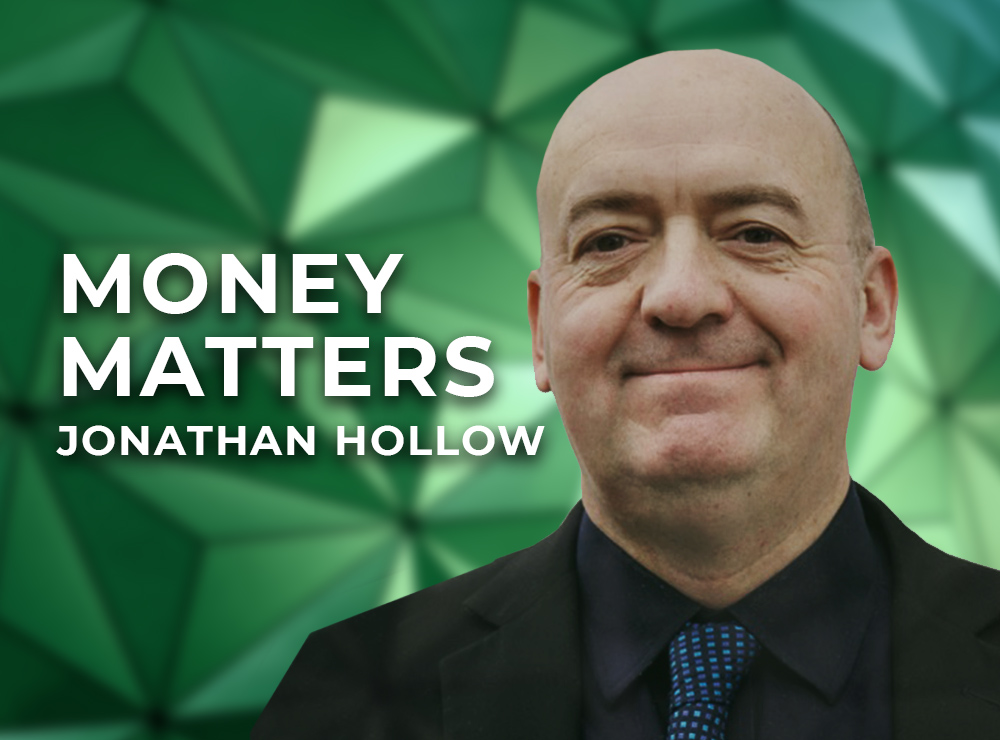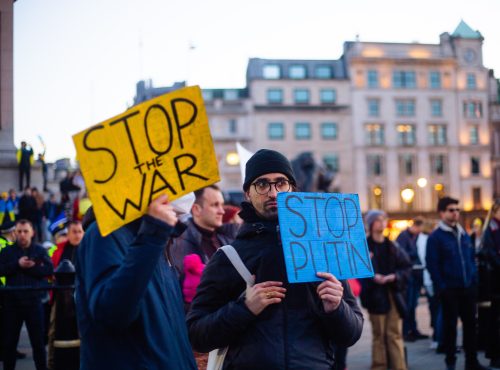
It’s almost two weeks since Russia began its invasion of Ukraine — the largest conventional military attack in Europe since World War II. What is clear is that this is a hugely complex situation that will not be quickly or easily resolved. Commentators are still trying to make sense of what impact it’s going to have on our lives.
TEBI’S JONATHAN HOLLOW used to live in Moscow and has travelled widely in Russia, Ukraine and other former Soviet republics. Here he looks at the wider lessons the crisis is teaching us about the money.
Many commentators are saying that the war in Ukraine is a turning point in world history. I think this is already a fact. Like many such turning points, the crisis is multi-faceted and full of contradictions. Today I want to reflect on the two contradictory money lessons that the Ukraine crisis is teaching us — simultaneously.
Ukraine is teaching us that there’s much more to life than money
As I write, markets are plunging, oil and gas prices are rising to unprecedented levels, and gold is soaring in value. How long this will last, nobody knows. The paper losses on my own investments are approaching the £100,000 mark. In “normal” times, this financial crisis would be impossible to knock off the front page of every paper — like the 2008 financial crash.
And yet this is not the case. The front pages are focused on people and the war. The financial crisis is being reported on, and it is important. But one of the most refreshing things about what’s happening now is that most of the world is acting as if there’s more to life than money.
Corporations are going well beyond the requirements of international sanctions to cut off their business with Russia. The parade of refuseniks increases every day: Netflix, Apple Pay, Ikea, Danone, Prada, Dior, Gucci. They have all carefully curated relationships and business in Russia for 25+ years.
I lived in Moscow during 1993–1994. I know how challenging it was for Western companies to establish themselves there. Moscow was a genuinely dangerous place to do business. And I know how much these first imports from the wider world meant to many Russian people. But Russia’s invasion has been so far beyond any acceptable norms, and the reactions of the Ukrainian people so courageous and right, big business is cutting ties overnight. It is taking decisions as if money doesn’t matter.
The book that Robin Powell and I have written together, forthcoming this autumn, is all about how to manage the mysteries of money to fund a happy retirement. But our first few chapters are not really about money at all. They are about its links to life and happiness. In particular, we looked at the academic evidence about the links between money, time and happiness.
Our reading of all this evidence brought out three key points:
- Personal meaning (memories) and interpersonal connection are much stronger drivers of human happiness than wealth, or spending it. Using time to strengthen relationships with friends and family is likely to bring the most happiness.
- Focusing too much on money tends to prime people to be less social, less charitable, and less likely to focus on those behaviours that drive happiness.
- If your income is too low to satisfy your basic needs, your lack of money will indeed make you unhappy. But beyond a certain level of income and basic needs, more money brings less meaning. Indeed, a 2010 study from Daniel Kahneman and Angus Deaton at Princeton managed to put a figure on a key inflection point. They surveyed and correlated income and happiness levels. They concluded that up to about $75,000 a year, more money does increase happiness. Above that, it is subject to a law of plummeting returns.
To me, the Russia sanctions amplify the first and second points. I don’t think it’s too much of a stretch to say that democracy is human connection writ large, human connection at the level of statehood. And dictatorship is its opposite. Corporations and governments see the battle in Ukraine as risking a world in which territorial plunder trumps solidarity and human connection.
We appear to value a world of solidarity and human connection more than money. Can Russia be defeated? Let’s hope we can stay the course.
Ukraine teaches us the sheer power of money in international affairs
And yet … a fascinating (and quite alarming) feature of the current crisis is the coordinated use of financial firepower, as an alternative to military weapons. Russia’s commercial banks are being starved of resources from the international banking system. And those reserves of Russia’s central bank that are held in foreign currency accounts have effectively been frozen. The objective behind all this is a collapse of the Russian economy.
In 2017 I travelled to Iran, which is the only previous country to be cut off from the Swift payments system. Iran was cut off totally, whereas currently Russia’s disconnection is only partial. As a foreign traveller, this meant there was no way of accessing money in Iran. No ATMs, no travellers’ cheques. For Iranians, there was a functioning internal banking system, but almost no way of taking payments from foreigners beyond cash. So the only way of funding a visit to Iran was to change pounds into dollars and euros, take a huge bundle adequate for the stay (and more for any emergencies), then cling on to it for dear life. Money was highly physical again, a grubby bundle of notes, held close to the skin.
So I know how emotional and elemental this disconnection can be. Because the money systems of the world have become more interconnected and fluid, disconnection is an extremely powerful response. But I also worry about whether a line will be drawn by Russia between fighting with money and fighting with weapons.
In 1962 Harold Macmillan reached an agreement with John F Kennedy for the United States to supply Britain with a nuclear deterrent. He promised that the nuclear weapons would be used exclusively for the defence of the Western Alliance, “except where Her Majesty’s Government may decide that supreme national interests are at stake”. “Supreme national interests” has always been a very pregnant phrase, and to me it now emerges from the shadows.
It’s a test Russia might well be applying to the strangulation of her central bank.
I approve of using financial systems as leverage to address this terrible invasion. But I’m advocating that we recognise just how powerful our Russia sanctions are. Our use of them now needs to be as carefully calibrated as any physical weapons. I would like to hope that senior generals are in the room when their use is discussed.
JONATHAN HOLLOW worked for the UK Government’s Money and Pensions Service and is a writer and commentator on consumer education and protection.
ALSO BY JONATHAN HOLLOW
Keeping your digital life secure
How to avoid investment fraud and scams
OUR STRATEGIC PARTNERS
Content such as this would not be possible without the support of our strategic partners, to whom we are very grateful.
TEBI’s principal partners in the UK are S&P Dow Jones Indices and Sparrows Capital.We also have a strategic partner in Ireland — PFP Financial Services, a financial planning firm in Dublin.
We are currently seeking partnerships in North America and Australasia with firms that share our evidence-based and client-focused philosophy. If you’re interested in finding out more, do get in touch.
© The Evidence-Based Investor MMXXII








